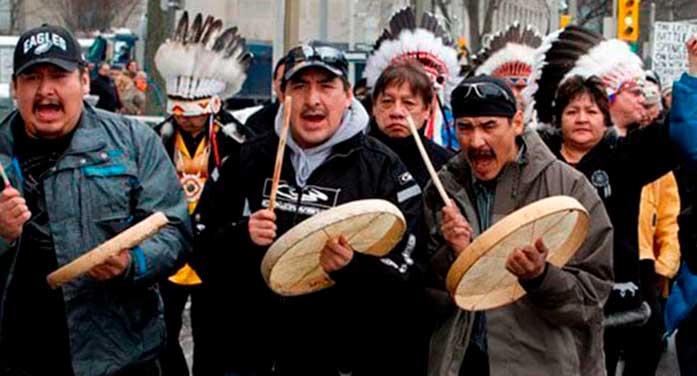 I recently became engaged in a war of words with the editor of a local newspaper. I was accused of slurring Indigenous people by using the term “gravy train” to describe the rich benefits that a minority of people have been able to extract from the system.
I recently became engaged in a war of words with the editor of a local newspaper. I was accused of slurring Indigenous people by using the term “gravy train” to describe the rich benefits that a minority of people have been able to extract from the system.
I had always been careful to point out that the vast majority of Indigenous people are not on a gravy train – quite the opposite, in fact. But I maintain that people like high-income earning chiefs and some lawyers charging huge fees for victim cases are indeed on a gravy train.
The editor made it clear that in his opinion Indigenous people were being insulted by my criticism of what I perceive as an unfair and corrupt system. He didn’t refer to the many successful Indigenous Canadians to make his argument. Instead, he resorted to stereotypes, such as the “the smiling faces of Indigenous children doing hoop dances at ceremonies,” and similar references in a patronizing and facile response.
It occurred to me that this editor was in a trap that so many Canadians fall into: the soft racism of low expectations when it comes to Indigenous people.
For reasons not clear to me, many people seem to believe that Indigenous people must be treated differently than everyone else and often offered help that’s not offered to others. Syrian refugees will be given help on a temporary basis but are then expected to make their own way. Well-meaning people routinely collect winter clothing or put together hampers for Indigenous people, treating them as though they were unable to look after their families.
Many of these people fall into the trap of expecting less of Indigenous people than they expect from other people. This soft racism is done with the best of intentions – but it’s racism, all the same.
This soft racism infects government thinking as well. There are many special government programs available only to Indigenous people and they treat them like they’re children. A myriad of federal plans are available to Indigenous people regardless of their level of income. Those programs are based on a subconscious belief that all Indigenous people need special help.
Why does this happen?
One thing I learned early in my career as a lawyer and a judge is that Indigenous people are just as capable as anyone else. However, it was equally clear that you take away people’s independence and their pride by placing them in a different category than everyone else.
We need to talk about racism by Michael Taube
Treating people as helpless victims contributes to a victim mentality and the phenomenon of learned helplessness, as described so well by the noted African-American author Thomas Sowell. When we routinely regard one group of people differently, we’re not helping but hurting them.
And that’s what we’ve done in the case of Indigenous people in Canada.
If any proof is needed for the assertion that Indigenous people are every bit as capable as anyone else, one need only glance at a newspaper: Manitoba NDP Leader Wab Kinew delivered a policy statement; singer/actor Tom Jackson gave a concert; and Sen. Murray Sinclair wrote a tweet read by thousands, and on and on.
And of equal significance: the many Indigenous people quietly living successful lives and inspiring young people by their example.
These people are just telling us what we already know – Indigenous people are just like everyone else. We do them a great disservice by expecting less of them because of their ethnic or racial background.
We must show the soft racism of low expectations the door.
Brian Giesbrecht is a retired judge and a senior fellow with Frontier Centre for Public Policy.
Brian is a Troy Media Thought Leader. Why aren’t you?
The views, opinions and positions expressed by columnists and contributors are the author’s alone. They do not inherently or expressly reflect the views, opinions and/or positions of our publication.

